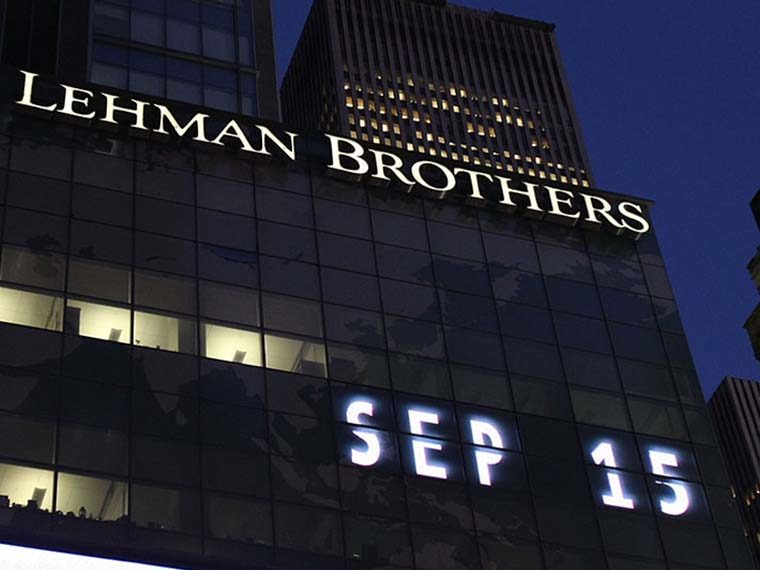Stock prices dip around some announcements of return of jobs
With the arrival of COVID-19 in early 2020, U.S. medical workers soon faced a shocking scarcity of masks, gowns and gloves to protect them from the infectious new disease, interrupting critical care and forcing the reuse of disposable items.
The crippling shortages called attention to an inconvenient truth: The U.S. relies on foreign suppliers for more than iPhones and sneakers; it depends on them for mission-critical supplies of antibiotics, ibuprofen and personal protection equipment. China alone provides half the world’s medical masks.
The crisis ramped up efforts to bring manufacturing back home, a process known as reshoring, as opposed to offshoring. In the first half of 2020, 321 companies returned operations to the U.S., and 60% of the announcements cited the pandemic as a factor, according to the Reshoring Initiative.
Opt In to the Review Monthly Email Update.
The decision to reshore, like the choice to offshore, can be complex. Returning operations to the U.S. reduces transportation costs, can lower inventory expenses by placing supplies closer to where they’re needed, and help make manufactured goods reach domestic markets more rapidly. On the downside for companies, it can mean higher labor and production costs, and the need to reengineer supply chains and internal operations.
Executives also have to reckon with the immediate — and sometimes superficial — response of stock market investors.
How the market judges reshoring decisions is the subject of a working paper from Hong Kong Polytechnic University’s Miyuki P.S. Cheng, , UCLA Anderson’s Christopher Tang, Hong Kong Polytechnic University’s Chris K.Y. Lo and Andy C. L. Yeung, and University of Liverpool’s Hugo Lam. Analyzing reshoring announcements between 2006 and 2018, the researchers suggest that investors can be fickle — and sometimes unpredictable — in their response.
Consider:
- Companies that relocated to states controlled by Republicans, who generally promise lower taxes and generous relocation subsidies, tended to receive a positive response from the market.
- The market looked unfavorably on reshoring decisions by high-tech companies with heavy investments in overseas research and development, contrary to the common belief that such companies benefit from stronger intellectual-property protections back home.
- Companies that moved operations out of China also received a negative market reaction, which looks surprising now that COVID-19 has exposed additional risks from China-based production.
- Investors took a dim view of reshoring when it involved outsourcing those operations previously performed in-house, even if overseas. They also reacted negatively when reshoring companies brought functions in-house that had been outsourced.
The negative market response to some reshoring decisions suggests that management isn’t doing enough to communicate the benefits. The public rhetoric around reshoring, of course, is mostly about jobs, which is why politicians and labor support the activity. But investors are focused more narrowly on the bottom line.
“To get Wall Street excited about reshoring, firms must articulate the value of doing so, which includes increasing U.S. employment, reducing carbon footprint and improving product provenance,” UCLA’s Tang says in an interview.
Using data compiled by the Reshoring Initiative, the authors analyzed reshoring announcements by 85 publicly traded companies. Looking for “abnormal stock movements” — the change in stock prices adjusted to take account of marketwide movements — they compared prices from two days before an announcement with those two days after. They then sought to identify risk factors perceived by investors.
For instance, moving to a state offering generous subsidies, lower taxes and other business-friendly policies can reduce the cost of reshoring. Based on the assumption that states controlled by Republicans are more likely to adopt such policies, the paper suggests that companies relocating to red states saw a marked boost to their stock prices.
On the other hand, stock prices of companies with extensive R&D investments overseas saw a notable drop after a reshoring announcement, despite conventional wisdom that companies run a greater risk of IP theft when operating overseas.
“The market reaction to the high-tech firm reshoring is not as positive as expected,” the authors write.
Investors, they suggest, may worry that R&D-intensive companies face higher costs for engineers and scientists back in the states and that they’ll have trouble finding local workers with the skills needed for today’s advanced manufacturing processes.
The negative response to reshoring out of China was also notable, especially in light of escalating trade tensions. Despite the increased political pressure, the authors speculate, investors might be worried that moving production from China will still mean higher costs and make the reshoring companies less competitive.
Because of the timing of the study, the sample ending in 2018, the findings don’t reflect COVID-19 adjustments. “This dynamic may be different for reshoring of PPE manufacturing back to the United States,” they write.
And yet, interest in reshoring due to pandemic-related disruptions may have faded. In an April survey by accounting firm EY, it found 83% of executives at European multinational companies were considering reshoring. In a follow-up survey in October, the share had dropped to 37%.
Featured Faculty
-
Christopher Tang
UCLA Distinguished Professor; Edward W. Carter Chair in Business Administration; Senior Associate Dean, Global Initiatives; Faculty Director, Center for Global Management
About the Research
Cheng, M., Tang, C., Lo, C., Lam, H. (2020). Return to USA: Impact of Reshoring Announcements and Reshoring Risks on Market Valuation.





